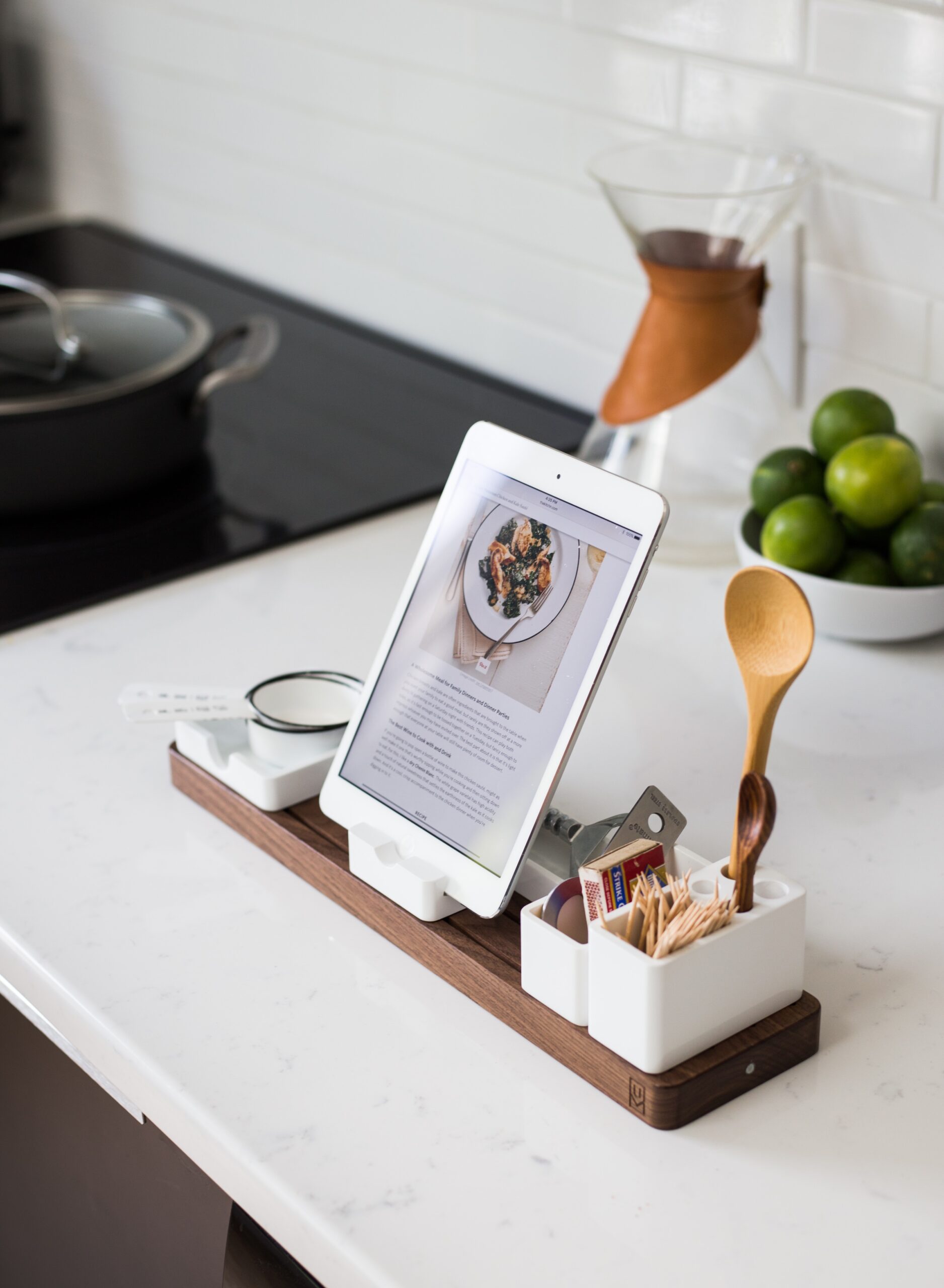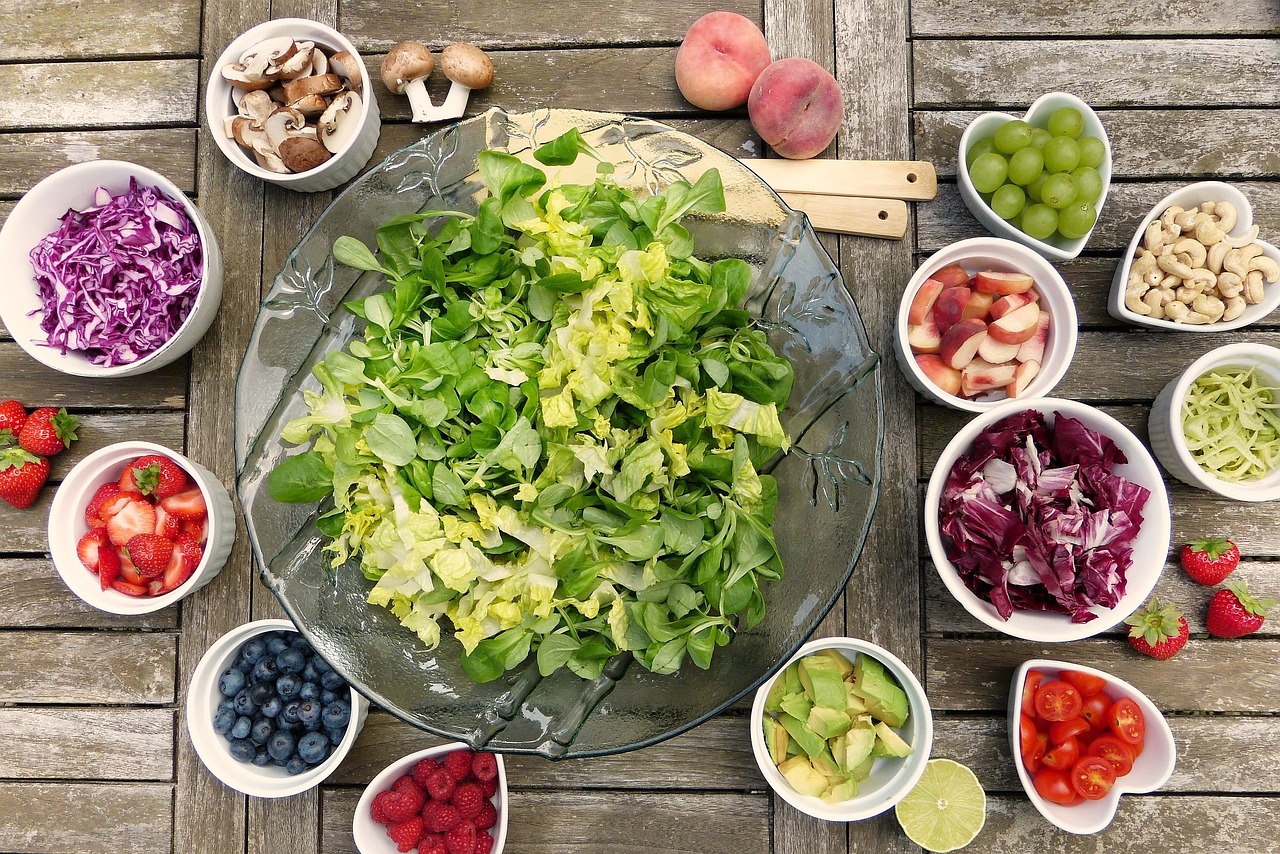Are you ready to embark on a delicious culinary adventure? Look no further than the “Beginner’s Guide to Learning Cooking.” Whether you’ve never set foot in the kitchen or you’re a novice looking to expand your skills, this comprehensive guide will walk you through the basics of cooking. From mastering essential techniques to understanding kitchen essentials and exploring popular recipes, this guide is your ticket to becoming a confident and capable cook. So grab your apron, put on your chef’s hat, and get ready to tantalize your taste buds with the art of cooking!
Table of Contents
Learning Cooking – Choosing Your Cooking Goals
Identify Your Motivation
When embarking on your cooking journey, it’s important to identify your motivation for wanting to learn how to cook. Is it to save money on eating out? Do you want to eat healthier meals? Or perhaps you simply enjoy the process of creating delicious dishes? Understanding your motivation will help you stay focused and committed throughout your culinary adventures.
Set Realistic Goals
Setting realistic goals in learning cooking is essential to your success as a beginner cook. Start by identifying what you hope to achieve in the kitchen. Do you want to be able to prepare a few basic meals? Or do you aspire to become a master chef? Whatever your goals may be, make sure they are attainable within your current skill level and time constraints.
Decide What Type of Cuisine to Focus On
With a wide array of cuisines to choose from, deciding on what type of cuisine to focus on can be overwhelming. Consider your personal preferences, cultural background, and the ingredients readily available in your area. Whether you choose to explore Italian, Asian, or Mediterranean cuisine, narrowing your focus will allow you to dive deeper and truly master the flavors of a particular culinary tradition.
Create a Cooking Plan
To ensure a smooth and enjoyable cooking experience, it’s important to create a cooking plan. Start by identifying the meals you want to prepare throughout the week and make a shopping list accordingly. Set aside specific times for grocery shopping, meal prepping, and cooking. Having a plan in place will help you stay organized and make the most out of your time in the kitchen.
Stocking Your Kitchen
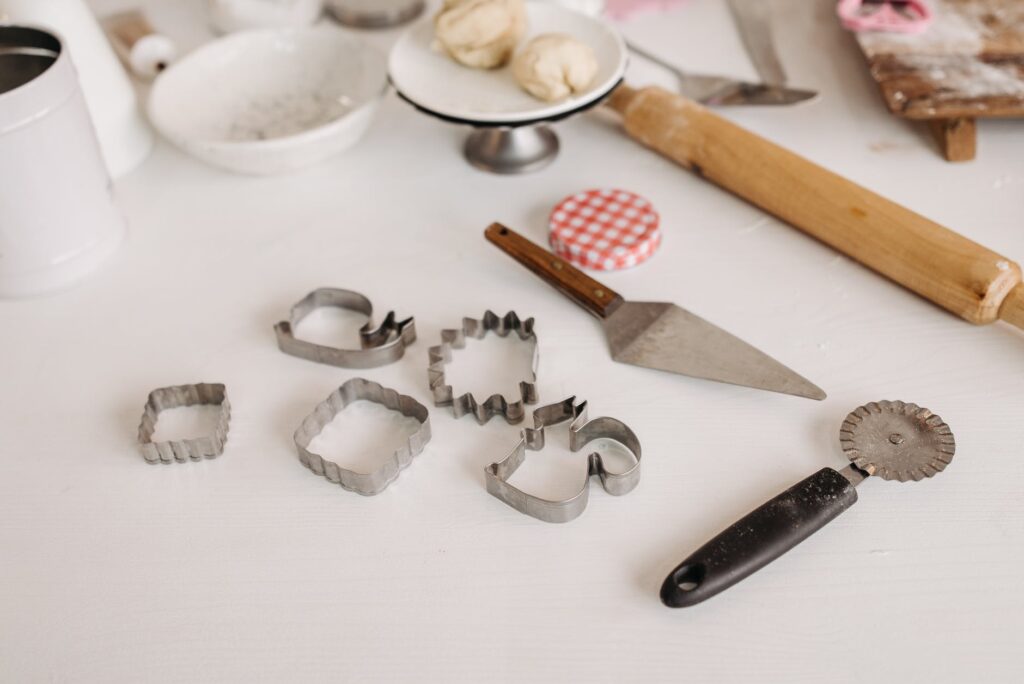
Essential Tools and Utensils
Before diving into cooking, make sure you have the essential tools and utensils in your kitchen. These include a sharp chef’s knife, a cutting board, mixing bowls, measuring cups and spoons, a sturdy skillet, and pots of various sizes. Investing in quality tools will make your cooking experience more efficient and enjoyable.
Basic Pantry Staples
Stocking your pantry with basic staples will ensure that you always have key ingredients on hand to whip up a delicious meal. Some essential pantry items include olive oil, salt, pepper, sugar, flour, rice, pasta, canned beans, and a variety of herbs and spices. These staples will serve as the foundation for many of your recipes and give you the flexibility to create a wide range of dishes.
Fresh Ingredients to Keep on Hand
In addition to pantry staples, it’s important to keep a selection of fresh ingredients in your kitchen. This includes fruits and vegetables, which provide essential nutrients and add flavor and color to your meals. Consider keeping staples like onions, garlic, tomatoes, leafy greens, and citrus fruits readily available. Making it a habit to have fresh ingredients on hand will inspire you to get creative with your cooking.
Organizing Your Kitchen
Maintaining an organized kitchen is key to a smooth cooking process. Start by decluttering your cabinets and drawers to create space for your tools and ingredients. Group similar items together and label containers to make it easier to find what you need. Having an organized kitchen will not only save you time but also make cooking a more enjoyable and stress-free experience.
Mastering Basic Cooking Techniques
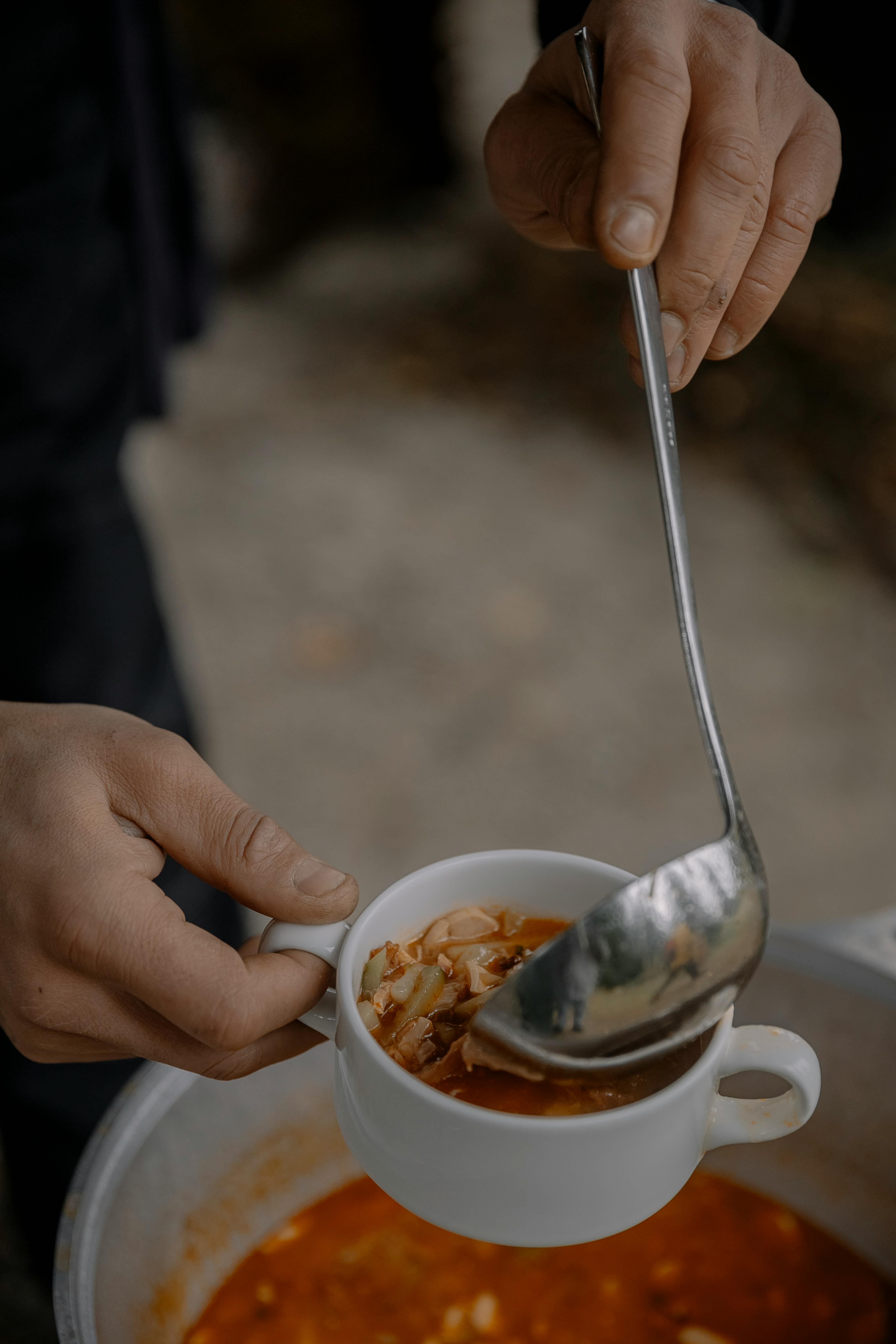
Knife Skills
One of the fundamental skills to master in the kitchen is knife skills. Properly handling a knife and knowing basic cutting techniques will not only make your cooking more efficient but also ensure your safety. Learn how to hold a knife correctly, practice different cutting techniques such as chopping, dicing, and mincing, and improve your speed and precision with regular practice.
Measuring and Mixing
Accurate measuring and proper mixing are essential for successful cooking. Learn how to measure ingredients correctly using measuring cups and spoons or a kitchen scale for more precise measurements. When it comes to mixing, understand the different techniques such as folding, stirring, and whisking, and know when to apply each method based on the recipe at hand.
Sauteing and Stir-Frying
Sauteing and stir-frying are versatile cooking techniques that allow for quick and flavorful meals. Master the art of sauteing by heating oil or butter in a pan, adding your ingredients, and cooking them over medium-high heat while continuously stirring. Stir-frying follows a similar principle but often involves higher heat and quicker cooking times. Experiment with different flavor combinations and ingredient pairings to create delicious sauteed and stir-fried dishes.
Roasting and Baking
Roasting and baking are cooking techniques often associated with meats and baked goods, respectively. Roasting involves cooking food in the oven at higher temperatures to create a caramelized crust and flavorful interior. Baking, on the other hand, typically involves lower temperatures and is used for bread, pastries, and desserts. Understand the different temperatures and cooking times required for different ingredients to achieve perfect roasts and baked goods.
Boiling and Simmering
Boiling and simmering are essential techniques when it comes to cooking grains pasta, and making stocks, soups, and stews. Boiling refers to heating liquids until they reach their boiling point, while simmering involves maintaining a gentle, steady heat just below boiling. Understand the cooking times needed for different ingredients and the effects that boiling or simmering can have on the texture and flavor of your dishes.
Understanding Recipe Formats
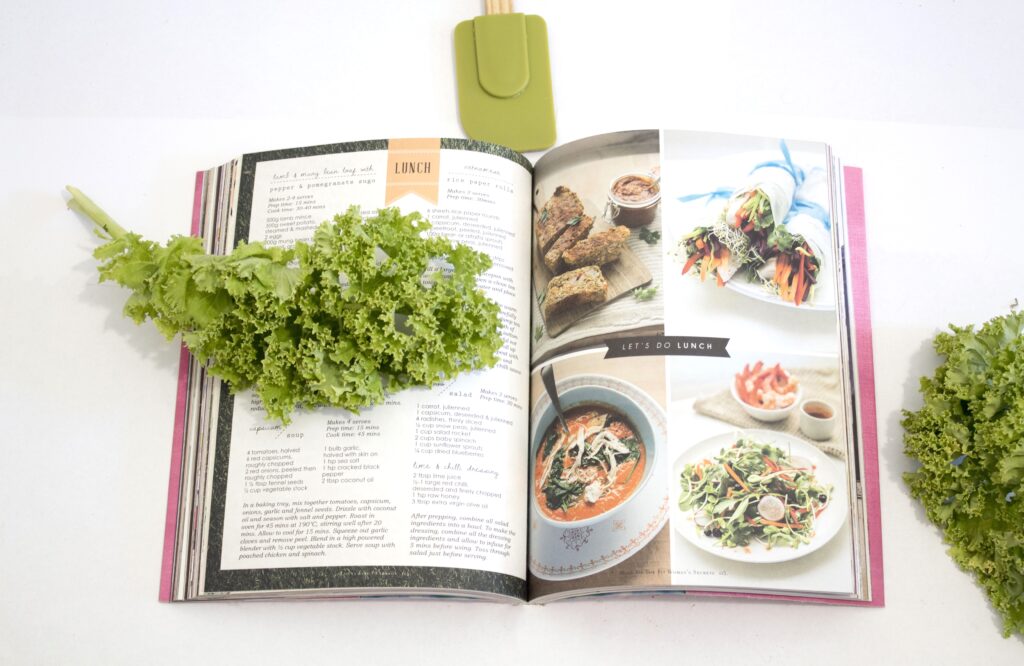
Learning Cooking – Reading Recipes
As a beginner cook, learning to read recipes correctly is crucial. Familiarize yourself with the various components of a recipe such as the ingredient list, measurements, and cooking instructions. Pay attention to specific terms and techniques mentioned and be sure to read the entire recipe before starting to cook. This will help you understand the sequence of steps and plan your cooking accordingly.
Following Instructions
Following instructions accurately is vital to achieve the desired outcome in your cooking. Ensure that you understand each step before moving on to the next, and follow the listed measurements and cooking times. Pay attention to details such as preheating the oven or slicing ingredients to a specific thickness. Remember, precision and attention to detail are key when it comes to cooking.
Substitutions and Modifications
As you gain confidence in the kitchen, feel free to experiment with substitutions and modifications to recipes. However, it’s important to understand the purpose of each ingredient and how it contributes to the overall dish. Some substitutions may work well, while others may alter the flavor or texture significantly. As you become more familiar with different ingredients, you will develop a sense of what modifications will work best for your tastes.
Building Your Culinary Knowledge
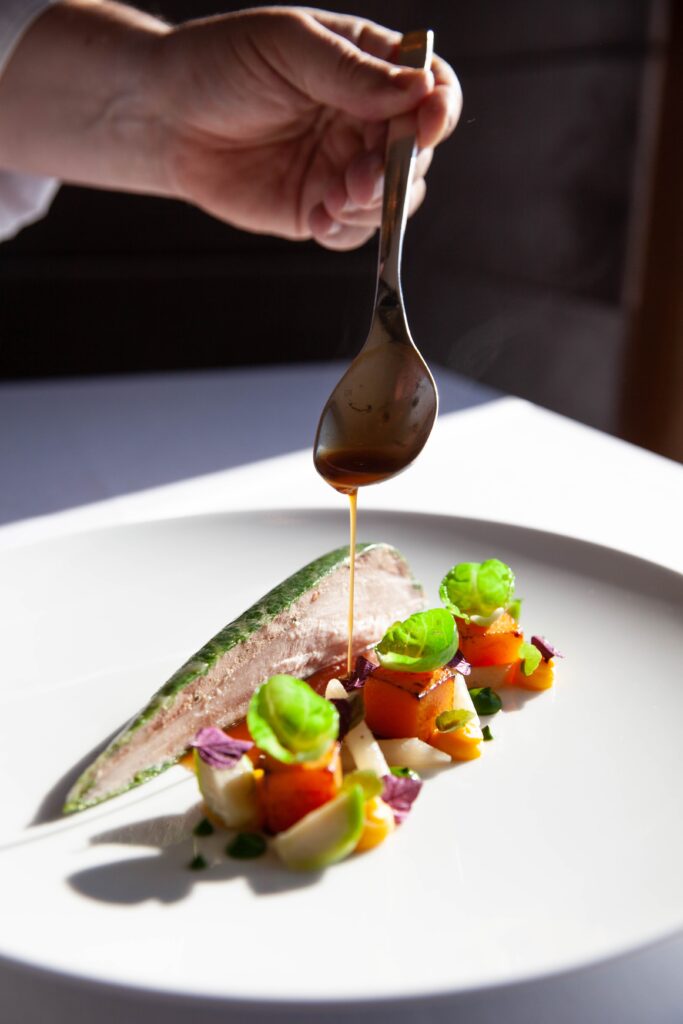
Learning About Different Ingredients
To become a skilled cook, it’s essential to familiarize yourself with different ingredients. Research their flavors, textures, and appropriate cooking techniques. Understand the different types of vegetables, meats, seafood, grains, and spices available and learn how best to incorporate them into your meals. This knowledge will not only enhance your cooking but also allow you to make informed ingredient substitutions and adjustments to recipes.
Exploring Flavors and Seasonings
Understanding how flavors and seasonings work together is a vital aspect of cooking. Experiment with various combinations of herbs, spices, and condiments to create unique and delicious flavors. Taste as you cook and learn to balance flavors – sweet, sour, salty, and bitter – to achieve a harmonious taste profile. As you gain experience, you will develop your own taste preferences and evolve your flavor profiles accordingly.
Understanding Cooking Methods
Each cooking method has its own purpose and effect on ingredients. Learn about different cooking methods such as grilling, steaming, braising, and more. Understand when to use each method to achieve the desired result. Experiment with these methods to broaden your culinary repertoire and develop new techniques that can be applied to a variety of dishes.
Studying Food Safety and Hygiene
Food safety and hygiene are paramount when it comes to cooking. Learn and practice proper food handling, storage, and cooking temperatures to prevent foodborne illnesses. Understand how to safely handle raw meats, vegetables, and eggs to avoid cross-contamination. Keep your kitchen clean and sanitized, and ensure that you are aware of any potential allergies or sensitivities when cooking for others. By prioritizing food safety and hygiene, you can enjoy your cooking with peace of mind.
Practicing Recipes and Dishes
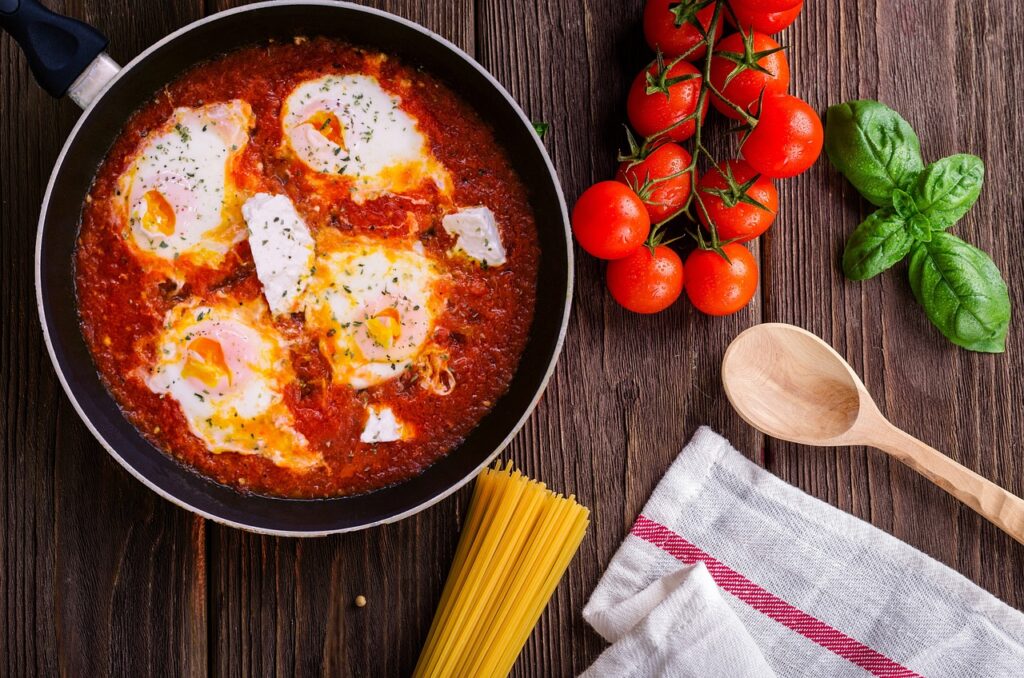
Starting with Simple Recipes
As a beginner cook, it’s best to start with simple recipes and gradually increase the complexity. Begin with dishes that have fewer ingredients and straightforward cooking methods. This will allow you to focus on mastering the basic techniques and building your confidence. As you become more comfortable, you can challenge yourself with more intricate recipes and experiment with different flavors and ingredients.
Gradually Challenging Yourself
Once you have a good grasp of the basics, challenge yourself by exploring more complex recipes. Try your hand at dishes that require multiple steps or techniques that are new to you. Pushing your boundaries and stepping out of your comfort zone will help you grow as a cook and expand your culinary repertoire.
Experimenting with Variations
As you become more confident in the kitchen, don’t be afraid to experiment with variations of recipes. Modify flavors, swap ingredients, or add your own twist to make the dish your own. This creativity will not only keep your cooking exciting but also help you discover new flavor combinations and techniques.
Repeating and Refining
Cooking is an ongoing learning process, and repetition is key to improving your skills. Keep practicing dishes that you enjoy and want to perfect. With each repetition, you’ll refine your technique, understand the subtleties of the recipe better, and develop a deeper appreciation for the ingredients and flavors involved.
Exploring Resources and Learning Materials

Cookbooks and Recipe Collections
Cookbooks offer a wealth of knowledge and inspiration for home cooks. Invest in a few well-regarded cookbooks that align with your culinary interests. Explore recipes, techniques, and culinary traditions from renowned chefs and experts. Additionally, recipe collections from trusted sources provide a wide variety of dishes to choose from, helping you discover new flavors and expand your cooking repertoire.
Online Cooking Classes and Tutorials
The digital world has made it easier than ever to access cooking classes and tutorials. Platforms like YouTube, culinary websites, and even apps offer a plethora of cooking videos and step-by-step instructions. Enroll in online cooking classes or follow along with renowned chefs and home cooks as they share their expertise. These resources provide visual demonstrations and helpful tips, allowing you to learn at your own pace.
Food Blogs and Websites
Food blogs and websites are incredible sources of inspiration for home cooks. They offer a diverse array of recipes, ranging from traditional to innovative, and often include detailed instructions and helpful tips. Follow your favorite food blogs and explore different websites to discover new dishes, learn about different cuisines, and gain insights into specific cooking techniques.
Cooking Shows and Videos
Cooking shows and videos have long been a popular source of culinary inspiration. Tune in to cooking shows on TV or browse through online platforms to watch professional chefs and home cooks in action. These shows not only offer entertainment but also provide valuable insights into technique, flavor pairings, and recipe execution. Take note of their tips and tricks, and apply them to your own cooking.
Cooking with Others
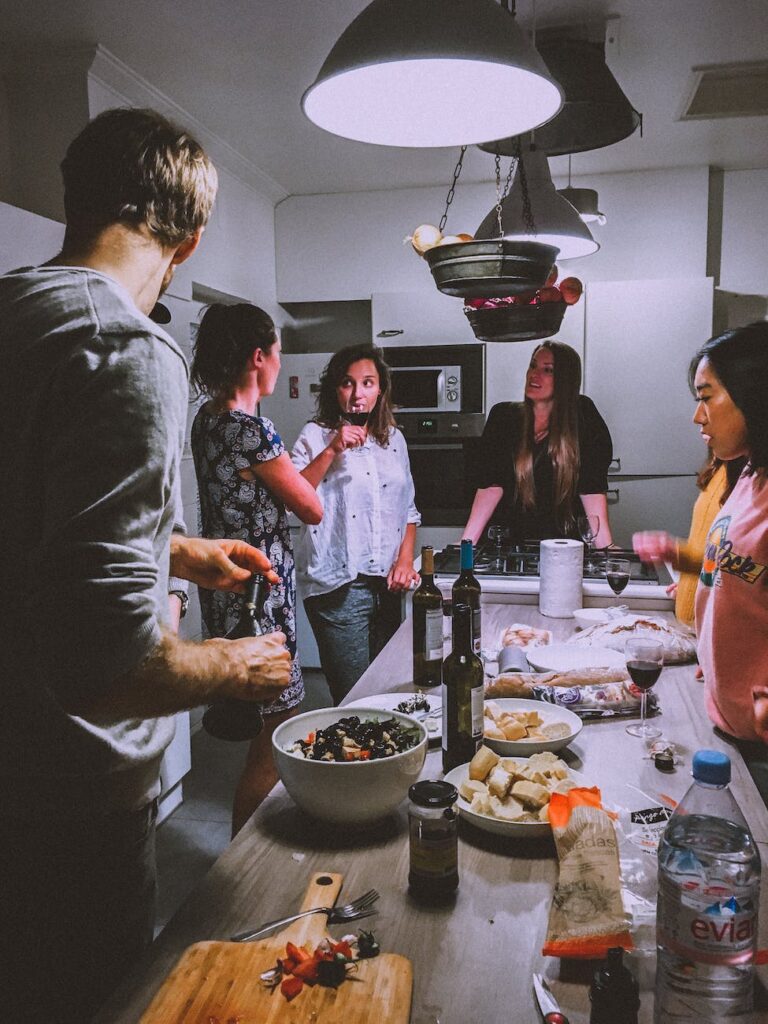
Joining a Cooking Class or Workshops
Cooking classes and workshops are a fantastic way to learn from experienced chefs and meet fellow cooking enthusiasts. Join a class in your local community or search for virtual classes that you can participate in from the comfort of your own kitchen. Interacting with others and sharing the cooking experience will not only enhance your skills but also provide an opportunity to be part of a supportive culinary community.
Cooking with Friends and Family
Cooking with friends and family can be a fun and rewarding way to learn and bond together. Host a potluck-style gathering where each person prepares a dish to share. Collaborate on a cooking project, such as making homemade pasta or baking a cake. Cooking with others allows for shared knowledge, creativity, and a sense of camaraderie in the kitchen.
Attending Culinary Events or Food Expos
Attending culinary events or food expos is a great way to immerse yourself in the world of food and cooking. Explore local food festivals or attend expos that showcase different cuisines. These events often include cooking demonstrations, tastings, and opportunities to mingle with chefs and food enthusiasts. Engaging with the culinary community at large can inspire new ideas and provide a deeper understanding of the food industry.
Sharing and Learning from Others
Sharing your cooking experiences and learning from others is an important part of your culinary journey. Join online cooking communities or forums where you can interact with fellow home cooks and exchange ideas, recipes, and tips. Share your own successes and challenges, and be open to receiving feedback and guidance from others. Building connections with like-minded individuals will not only enhance your skills but also provide ongoing support and encouragement.
Troubleshooting Common Cooking Mistakes

Overcooking or Undercooking
We’ve all experienced the frustration of overcooking or undercooking a dish. To avoid these common mistakes, become familiar with the cooking times and temperatures required for different ingredients. Use timers and occasionally check the doneness of your food to ensure it is cooked to perfection. With practice, you’ll develop a better sense of timing and achieve consistent results.
Seasoning and Flavors
Balancing flavors and seasoning your dishes appropriately is crucial for a memorable meal. It’s essential to taste as you go and adjust the seasoning accordingly. If a dish tastes bland, consider adding salt, acid, or spices to enhance the flavors. On the other hand, if a dish is too salty or spicy, try balancing it with sweetness or using a neutralizing ingredient. With practice, you’ll develop a keen palate and instinct for achieving the perfect balance of flavors.
Kitchen Emergencies
Kitchen emergencies are bound to happen from time to time. Whether it’s a burnt dish, a broken sauce, or a spilled ingredient, don’t panic. Stay calm and assess the situation. Determine if the dish can be salvaged or if it’s best to start over. Have a contingency plan ready, such as a backup dish or alternative ingredients. Embrace mistakes as learning opportunities and remember, even experienced chefs make mistakes in the kitchen.
Rescuing Failed Dishes
Even with the best intentions, there may be times when a dish doesn’t turn out as expected. Instead of giving up, try to salvage and repurpose the failed dish. For example, an overcooked roast can be transformed into delicious shredded meat for tacos or sandwiches. Get creative and think outside the box to turn a cooking mishap into a delicious improvisation. Learning how to rescue failed dishes will boost your confidence and make you a more resourceful cook.
Developing Your Own Cooking Style
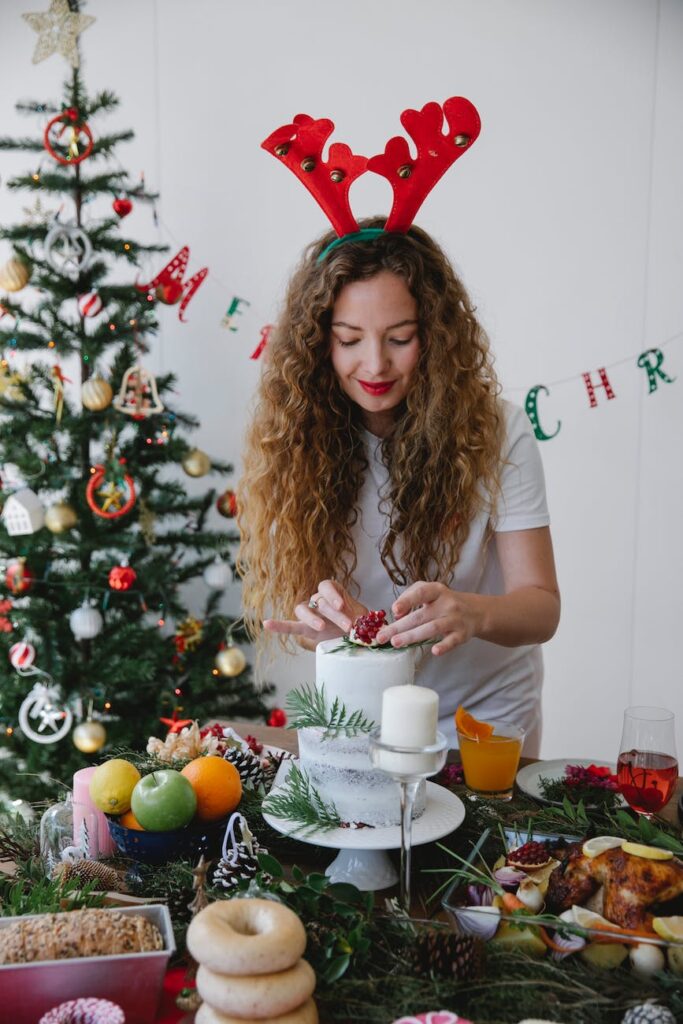
Experimenting with Ingredients and Techniques
Developing your own cooking style is all about experimenting with different ingredients and techniques. Be curious and willing to try new things. Incorporate ingredients you’re unfamiliar with, experiment with uncommon herbs and spices, and explore cooking methods you’ve never tried before. Through experimentation, you’ll discover flavors and techniques that resonate with you, leading you to develop a unique cooking style.
Putting Your Twist on Recipes
Adding your personal touch to recipes is a great way to develop your own cooking style. Once you’ve mastered the basics of a recipe, feel free to make modifications and add your own flair. Consider incorporating your favorite ingredients, adjusting the cooking techniques or seasoning, or presenting the dish in a unique way. By putting your twist on recipes, you’ll create dishes that reflect your taste and personality.
Adapting Recipes to Suit Your Taste
Every individual has their own likes and dislikes when it comes to food. As you become more experienced in the kitchen, adapt recipes to suit your taste preferences. Adjust the level of spice, sweetness, or acidity to create a dish that pleases your palate. Don’t be afraid to experiment and make the recipe your own. Adapting recipes will allow you to showcase your culinary creativity and create dishes that you truly enjoy.
Discovering Your Signature Dishes
Developing a signature dish can be the culmination of your cooking journey. It’s the dish that you’ve perfected and become known for among friends and family. Pay attention to the dishes you consistently receive compliments on or find the most joy in preparing. Experiment with these dishes, add your unique touch and continue refining them until they truly represent your culinary skills and style. Discovering your signature dish is a culinary achievement that reflects your growth and passion in the kitchen.
In conclusion, learning how to cook as a beginner involves a mix of practical skills, culinary knowledge, and personal creativity. By setting realistic goals, stocking your kitchen with essential tools and ingredients, mastering basic cooking techniques, understanding recipe formats, and continually exploring resources and learning materials, you can embark on a fulfilling cooking journey. Embrace the process of practicing recipes, cooking with others, troubleshooting common mistakes, and ultimately developing your own cooking style. With dedication and a friendly approach, your culinary skills will continue flourishing, bringing joy and satisfaction to your cooking adventures.

